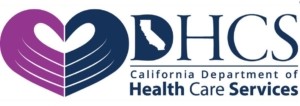Drinking Too Much? Signs and Symptoms of Alcohol Abuse
Table of Contents
Alcohol is the most commonly abused substance in the U.S., with nearly 55% of Americans report drinking at least one time during the past month, reports the NIAAA. When you drink alcohol regularly, sometimes it can be difficult to determine whether you might be drinking too much or just enough for it to be problematic and harmful — especially if you’re still managing to maintain your career, family life, and relationships. However, when left unchecked, alcohol abuse can gradually lead to serious problems with your health and overall livelihood.
You might be suffering from alcohol abuse if drinking has started to cause a series of problems in your life. If so, an alcohol rehab center can get you back on track by helping you adopt new, healthier coping methods and introducing you to new, fun activities that don’t involve alcohol use.
Here’s how to determine whether you or a loved one needs alcohol treatment, and more about safe, effective alcohol rehab treatments that can help you achieve long-term sobriety.
How Is Alcohol Abuse Defined?
Alcohol abuse, also known as alcohol misuse, is any type of drinking behavior that causes harm and distress. According to the CDC, alcohol misuse is defined as alcohol use that puts you at an increased risk for adverse health and social consequences.
The NIAAA says alcohol abuse is considered to be more than four drinks per day for men and more than three drinks per day for women, more than 14 drinks per week for men and more than seven drinks per week for women, or both. The CDC says alcohol abuse is more than two drinks per day for men and more than one drink per day for women.
Regardless of the amount you drink every day, it’s important to keep in mind that any level of alcohol use may be considered alcohol abuse if drinking is causing problems in your life.
Signs You or a Loved One Needs Alcohol Treatment
Many signs can indicate you or a loved one may be abusing alcohol and needs alcohol treatment. For instance, you may need alcohol treatment if you have dropped all your favorite hobbies so you can spend more time drinking, or if you have started arguing more frequently with your spouse as a result of being under the influence.
Here are other signs you or a loved one needs alcohol treatment, according to the U.S. National Library of Medicine:
You’ve Been Drinking for Longer Than Planned
Have you or your loved one been drinking for a longer time than initially planned, such as for several weeks in a row when you initially planned on enjoying just a few drinks on one weekend?
You’ve Been Unable to Stop Drinking
Have you or your loved one made plans on more than one occasion to start drinking less or to stop drinking completely, but haven’t been able to follow through with these plans?
You Spend Too Much Time Drinking or Hungover
Have you or your loved one been devoting far more time to obtaining and drinking alcohol than to other activities? Have you or your loved one been spending a lot more time feeling sick and hungover?
You Constantly Feel the Urge to Drink
Do you or your loved one frequently talk about alcohol or your cravings for alcohol? Alcohol abuse is characterized by constant preoccupation with alcohol, and by strong physical and psychological cravings for alcohol.
Drinking Has Been Interfering With Important Aspects of Your Life
Have you or your loved one been missing lots of work or school due to drinking the night before? Is alcohol use starting to affect your performance and productivity at work or school, or are you spending less time with your family so you can drink? Those who suffer from alcohol abuse will find that drinking has major negative effects that trickle over to other areas of their life.
Drinking Is Causing Problems With Your Relationships
Alcohol abuse can change your mood and overall persona to cause problems with your friends and relatives. You may lash out more often, say rude things, or neglect your loved ones. Heavy alcohol use can also lead to financial strain, loss of sexual libido, and other serious problems that can compromise your relationships.
Drinking Has Taken Priority Over Favorite Activities
Have you or your loved one tossed aside long-held hobbies and favorite activities so you can devote more time to drinking?
Drinking Has Landed You in Dangerous Situations
Have you or your loved one been engaging in unsafe sex, drunk driving, or other dangerous behaviors while drinking or after drinking? Alcohol lowers inhibitions and affects judgment to increase your likelihood of being in dangerous situations.
Drinking Is Causing Physical or Mental Health Problems
Are you or your loved one continuing to drink knowing that alcohol is causing health problems or worsening existing health problems? Alcohol abuse can cause or worsen depression, anxiety, weight gain, and liver disease, among many other health problems.
Drinking No Longer Produces the Same Physical Effects
Have you or your loved one noticed that drinking your usual amounts no longer produces euphoria and feelings of calm and relaxation? Have you had to drink higher amounts of alcohol just to feel a buzz? If so, you may be suffering from alcohol dependence and need alcohol detox treatment.
You Experience Alcohol Withdrawal Symptoms
Do you or your loved one experience symptoms like nausea, vomiting, shaking, and sweating when you are not drinking alcohol or when the effects of alcohol wear off? If so, you may be having withdrawal symptoms on behalf of being physically dependent on alcohol.
Treatments for Alcohol Abuse
If you or your loved one meet one or more of the above criteria, you may need professional treatment for alcohol abuse. Alcohol abuse can be safely and effectively treated using alcohol detox and behavioral therapy in an alcohol rehab program.
Alcohol and drug detox helps you withdraw from these substances while being closely monitored by medical staff who can reduce potential complications like seizures and rapid heart rate. Medications are often used in detox to reduce your symptoms and help you feel as comfortable as possible during withdrawal. According to the World Health Organization, alcohol detox can last anywhere between two and 10 days based on the severity of your alcohol dependence.
Behavioral therapy helps you change and improve harmful behaviors and attitudes associated with alcohol abuse. All drug and alcohol rehab programs can be customized for you or your loved one and include only the behavioral therapies you need to experience a successful, long-term recovery.
If you decide to seek alcohol treatment, contact Dana Point Rehab Campus with any questions.









Leave a Reply
Want to join the discussion?Feel free to contribute!